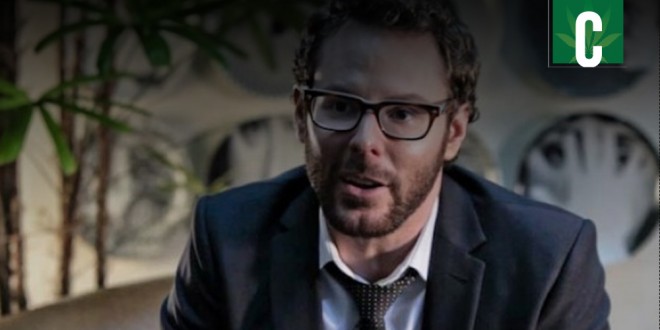It didn’t come as much of a surprise, but it marked a critical moment in the drive to legalize marijuana in California.
 Sean Parker, the tech billionaire behind that campaign, announced in February that he would give $500,000 to support the Adult Use of Marijuana Act, according to local reports.
Sean Parker, the tech billionaire behind that campaign, announced in February that he would give $500,000 to support the Adult Use of Marijuana Act, according to local reports.
That brings Parker’s donations to $1 million, including an earlier grant of $500,000. He is now the leading donor to the cause of reform in California.
Parker, a venture capitalist and philanthropist, made his name creating Napster in the late 1990s. He also briefly served as president of Facebook in the mid 2000s.
Over $2 million raised for collecting signatures
His new donation means the AUMA group has raised more than $2 million to pay for collecting signatures and putting the issue on the ballot in November. That effort is likely to cost several million dollars.
Other donations to the group include $500,000 from the Drug Policy Alliance, $500,000 from WeedMaps, and $250,000 from the estate of Peter Lewis, the late chairman of Progressive Auto Insurance. Parker is worth billions of dollars, so he is likely to give substantially more before the legalization question reaches voters – if it reaches voters.
That appears increasingly likely to happen. Not only is the campaign drawing significant financing, it has united the two largest group of activists. And public support for the idea remains strong.
Previous attempts to legalize in California fell flat, either because voters rejected the idea, as in 2010, or because activist groups failed to find enough common ground to make the ballot, as in 2014.
The AUMA proposal would legalize possession, cultivation, and sale of marijuana for recreation statewide. It would also impose regulations, including a possession limit of one ounce, and a sales tax on cannabis.
Parker’s proposal is the best bet for legalization
This initiative is seen as the best chance to end prohibition in the Golden State. Unlike many other proposals, it would impose tight restrictions and safeguards to protect children, a fact that should appeal to mainstream voters.
 Prominent supporters include Lt. Gov. Gavin Newsom, who begged off efforts in 2014 because, like many others, he believed 2016 would be a more favorable climate for reform. The NAACP did the same but recently announced its support for Parker’s marijuana initiative.
Prominent supporters include Lt. Gov. Gavin Newsom, who begged off efforts in 2014 because, like many others, he believed 2016 would be a more favorable climate for reform. The NAACP did the same but recently announced its support for Parker’s marijuana initiative.
Backing from the NAACP, the ACLU, and other civil rights groups is critical given California’s large minority populations. Black Americans and Latinos are arrested for marijuana possession at a much higher rate than whites, even though all three groups use the drug at similar rates.
But not everyone is happy with Parker’s approach. There are several competing initiatives, though few have any chance of making the ballot. Some advocates complain he hasn’t been transparent about his part in legalization.
Anthony Johnson, chief petitioner in Oregon’s 2014 legalization drive, said Parker should explain his role soon.
“When you don’t, the conspiracists run rampant,” Johnson said.
 California Marijuana Market Breaking "Marijuana News" from CA
California Marijuana Market Breaking "Marijuana News" from CA





